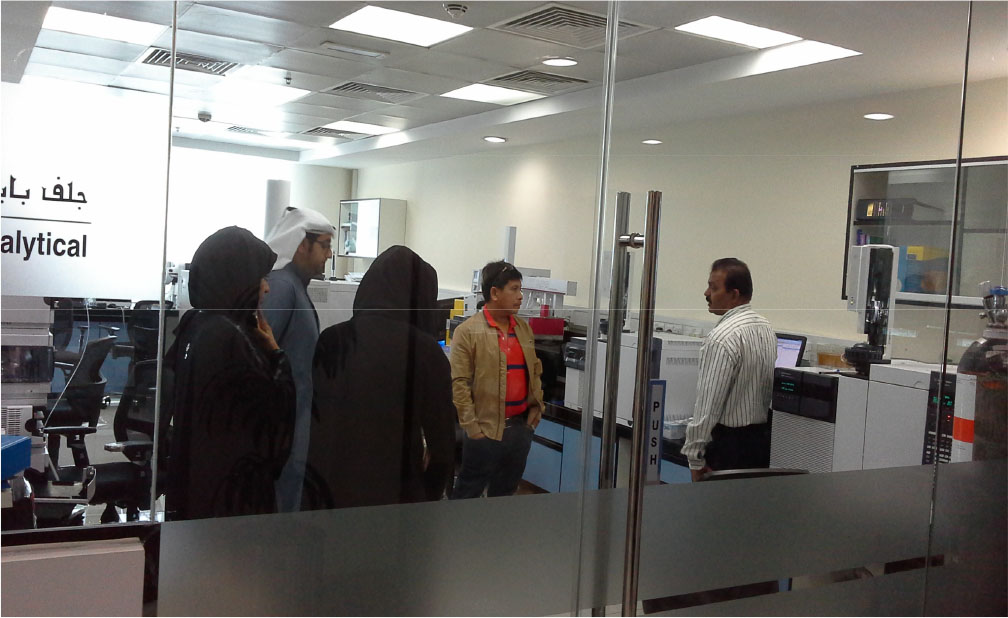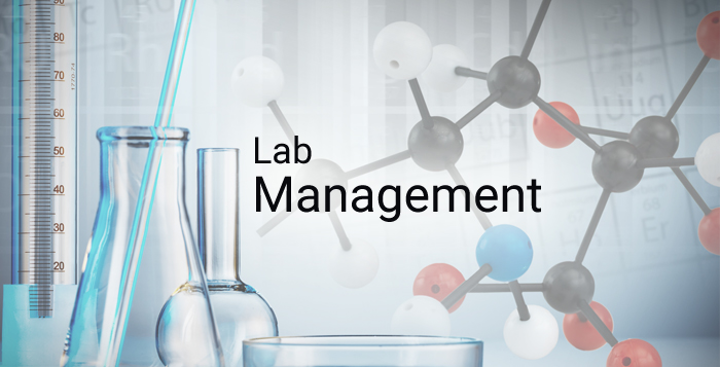Project Description
In today’s globalized and highly competitive market of testing services, only laboratories with a solid infrastructure and competent management and personnel can survive. Health and Safety of the general public, process optimization in the industrial sector, environmental monitoring and forensic and/or outbreak investigations are all based on laboratory test results. It is therefore of critical importance that laboratories operate under those conditions that will guarantee accurate results that are of real value to their customers.
Issues relating to business planning, quality assurance, personnel training and on-going competence, method selection and fitness-for-purpose, method validation, subcontracting, project management, non-conformities, QC failures investigation, will be dealt with in detail
Why attend
Successful Management of the analytical laboratory provides a comprehensive discussion of the problems that face analytical laboratory managers and presents proven techniques for improving the operation and performance of analytical labs. A wide range of topics are covered, including functions of various laboratory types including a discussion of legal proceedings that involve defending laboratory data, staffing and organization, motivation, management and development of personnel, personal relations and communication, sample handling, workload optimization, equipment selection and justification, budgeting and cost control including methods for calculating the dollar return on investments in capital equipment, and information management systems.
This course emphasizes measures that managers can take to ensure quality performance in both the laboratory and its personnel while maintaining the overall cost effectiveness of the operation. The course focuses on planning the laboratory work load and controlling the budget by the use of key performance indicators (KPIs).
Further, the course covers real-time monitoring of the budget using laboratory information management system, minimizing costs by applying alternative analytical methods, strategy on developing advanced technology analytical protocols at the lowest possible price and consumable-free analytical methods and their financial turnover.
The instructor will use case histories from his experience to illustrate the application of the management principles presented in this course for new and experienced lab managers alike
Course Objectives
By the end of the course, participants will be able to:
- Understand market structure and find niche markets still remaining unexploited
- Apply effective laboratory management techniques to differentiate themselves from competition
- Develop the skills for understanding and satisfying the real customer needs
- Perfect their skills in responding to varying market requirements in a timely and effective manner
- Apply modern management philosophies in your laboratory
- Get solutions to your management problems from a leading authority
- Define and focus on the lab mission
- Organize to meet the requirements of a mission
- Improve abilities to listen and communicate
- Motivate staff and build teams
- Recognize the manager’s job
- Apply and gain an in-depth knowledge on planning and budget of lab consumables, materials and equipment
- Discuss budgeting covering the role of budgeting in business operations, types of budgets, four common method, three additional approaches to budgeting, modern trends in budgeting and new thinking in budgeting and financial control
- Explain formal planning and budgeting, strategic planning, revenue and cost control goals as well as the linking strategic goals to business operations and budget cycle
- Describe budgeting and laboratory management including determining the actual cost to run a laboratory, staffing costs, equipment, consumables, overhead costs, direct and indirect costs and repairs and maintenance
- Distinguish effective management control through budgeting, budget monitoring and control process, tracking spending, variance analysis and taking corrective actions
- Employ case studies, group work discussion and practical applications on analyzing budget, recommending corrective action.
Who should attend
This course provides an overview of all significant aspects and considerations of modern laboratory management for laboratory managers, supervisors, chemists, chemical engineers, analysts and scientists.
Course Outline
The following program is planned for this course. However, the course instructor(s) may modify this program before or during the course for technical reasons with no prior notice to participants. Nevertheless, the course objectives will always be met:
Introduction
Lifestyle • Analytical Laboratories-Size and Types • Analytical Laboratories-Classification • Analytical Laboratory-Divisions • Large Analytical Laboratory-Instrumentation • Analytical Laboratory-Management • The Role of Needs in the Business Cycle ○ Prime Driving Force • Reasons for Attending the Course • Matured Adult Learners • Brief Contents of the Course • Current Position and Expectations
Analytical Chemistry as Central Science in Science and Technology
Classical Domain • Modern Domain • Classification of Analytical Chemistry • Measurements • Definitions of Analytical Chemistry and Chemical Analysis • Nature of Analytical Tools • Wide Array of Tools Used in Analytical Chemistry • Classification of Analytical Measurement Tools • Complete Measurement System • The Analytical Process (Unit Operations
Activities of Practicing Analytical Professionals The Practicing Analytical Professionals • General Daily Operations/Tasks • Type of Work (Role) Within an Analytical Laboratory • Role Player Between the Clients (Customers) and Analytical Laboratory • Source of New Developments in the Analytical Domain
The Analytical Laboratory as Business Activity and Business Enterprise
The Business Environment in Perspective • The Analytical Laboratory in the Micro-Environment • Objectives and Strategy
Vision and Mission, Goals, Planning and Organization (or Re-organization) of the Analytical Laboratory
Vision and Mission • Vision and Mission Document • Organization (or Re-organization) • Possible Ways to Organize (to Re-organize) • Tasks Descriptions • Advantages • Disadvantages
Human Resource Management for the Analytical Laboratory: Recruitment and Staffing
Role of Analytical Staff Members • Position of Human Resources in Relation to the Analytical Laboratory • Job Creation or Re-creation • Job Analysis • Recruitment • Pre-selection Assessment • Factors to be Consider in the Curriculum Vitae • Setting up the Final Interview. Factors to be Consider
• The Final Interview • The Final Decision
Communication Management: Communications and Expectations
What is Communication? • Communication Phases • Types of Communication that Analytical Laboratories Engage in • Internal Communication • Four Simple Rules of Communication • A Communication Model • Barriers to Effective Communication • How to Overcome Communication Barriers • Some Listening Pitfalls for Managers and Supervisors • Good Listening Habits • Ways to Terminate a Conversation • Staff Meetings • Example of a Well-constructed Standard Method • External Communication
Introduction to Budgeting
Role of Budgeting in Business Operations ○ Types of Budgets ○ Four Common Methods ○ Three Additional Approaches to Budgeting ○ Modern Trends in Budgeting ○ New Thinking in Budgeting and Financial Control ○ Three Additional Approaches to Budgeting ○ Modern Trends in Budgeting ○ New Thinking in Budgeting and Financial Control
Budgeting & Laboratory Management
Determining How Much it Actually Costs to Run a Laboratory ○ Staffing Costs ○ Equipment ○ Consumables ○ Overhead Costs ○ Direct & Indirect Costs ○ Repairs & Maintenance
Financial Management: Expense and Capital Budget, Cost Control Purpose of Financial Management • Laboratory’s Involvement • The Expense Budget • Cost Estimating • Charging Costs • Relating Costs to Budget • Cost Control of Supplies and Materials • Evaluating Standard Test Productivity • The Capital Budget
Purchasing and Inbound Logistics Management: Capital Investments, Buying Costly Instruments Purchasing Objectives • Purchasing Activities • The Purchasing Cycle • Reasons and Justification for Instrument Purchases • Some Further Justifications for Instrument Purchases • Total Cost of Instrument Ownership • Steps in Obtaining Information for Final Decision • Factors for Comparing the Different Suppliers • Important Dates for Instrument Purchase • Writing of Old Equipment and Leasing
Analytical Laboratory Space Management: Design and Management of Physical Laboratory Space Layout of the Laboratory. Work Dependence • Layout of the Laboratory. Old Laboratories • Example of Poorly Organized Laboratory Space • Example of a Better Organized Laboratory Space • Example of an Efficient Layout for an R&D Or Process Development Laboratory • Design of an Efficient Large Analytical Laboratory • Partitions of an Efficient Large Analytical Laboratory • General Criteria for the Design of an Analytical Laboratory • Safety/Housekeeping Awareness in the Design of an Analytical Laboratory
Management and Leadership: Organization and Decision-Making What is Management? • Management Skills and Roles • Planning and Strategy • Traits (Characteristics, Quality) of a Person that Should be Promoted to Manager • Some Common Pitfalls of Managers • Management Organization • What is Leadership? • Leadership Principles • Leadership Approaches • Leadership Factors • Management Control • Managerial Decision-making • The Rational Decision-making Process
Human Resource Management for the Analytical Laboratory: Placement, Incorporation, Training, Development, Performance Appraisal, Motivation and Staff Retention Placement of Staff Members • Incorporation of a New Employee • Training and Development • The Training and Development Process • Training and Development Methods and Techniques • Principles of Learning • Performance Appraisal • Contributors to PERFORMANCE APPRAISAL • Categories and Techniques of Performance Appraisal • Criticism by Employees on PERFORMANCE APPRAISAL • Usefulness of PERFORMANCE APPRAISAL
Developing Appropriate Key Performance Indicators for Budget Monitoring & Control
KPI Development Process ○ Selection of Appropriate KPI’s
Benchmarking What is Benchmarking? • What are Benchmarks used for? • Phases of Benchmarking • How to do Benchmarking? • Why Benchmark? • Summary of a Benchmark Questionnaire • An Analytical Benchmark Survey • Results of Laboratory Survey
Approach to Improving the Analytical Laboratory Approach for Improvement • Development of Vision and Mission Statements • What is Wrong with the Laboratory? (with Respect to Meeting the Mission) • Set Goals and Priorities (Short-term and Long-term) • Some Long-term Goals • Some Measures of Success • Partnering • Ways to Increase Speed and Reduce Cost
The workshop
This interactive training course includes the following training methodologies as presented on the next column based on percentage of the total tuition hours:
Lectures
Workshops & Work presentation
Case Studies & Practical Exercises
Videos, Sofware & General Discussion
The course instructor may modify the above training methodology before or during the course for technical reasons with no prior notice to participants.
Falcon Consulting Professionals is established in Greece for the last 15 years in the areas of technical consulting and professional training for the local industries. Falcon is expanding in GCC, aiming to provide the best consulting and training solutions to the industries of the region. Falcon’s instructors are accredited trainers and highly experienced in their fields, as well as adult training. We aspire to build our business relationships on mutual trust. The achievement of results with an emphasis on innovation and sustainability, quality, cost analysis and time scheduling are non-negotiable from the conceptual phase of the training.


